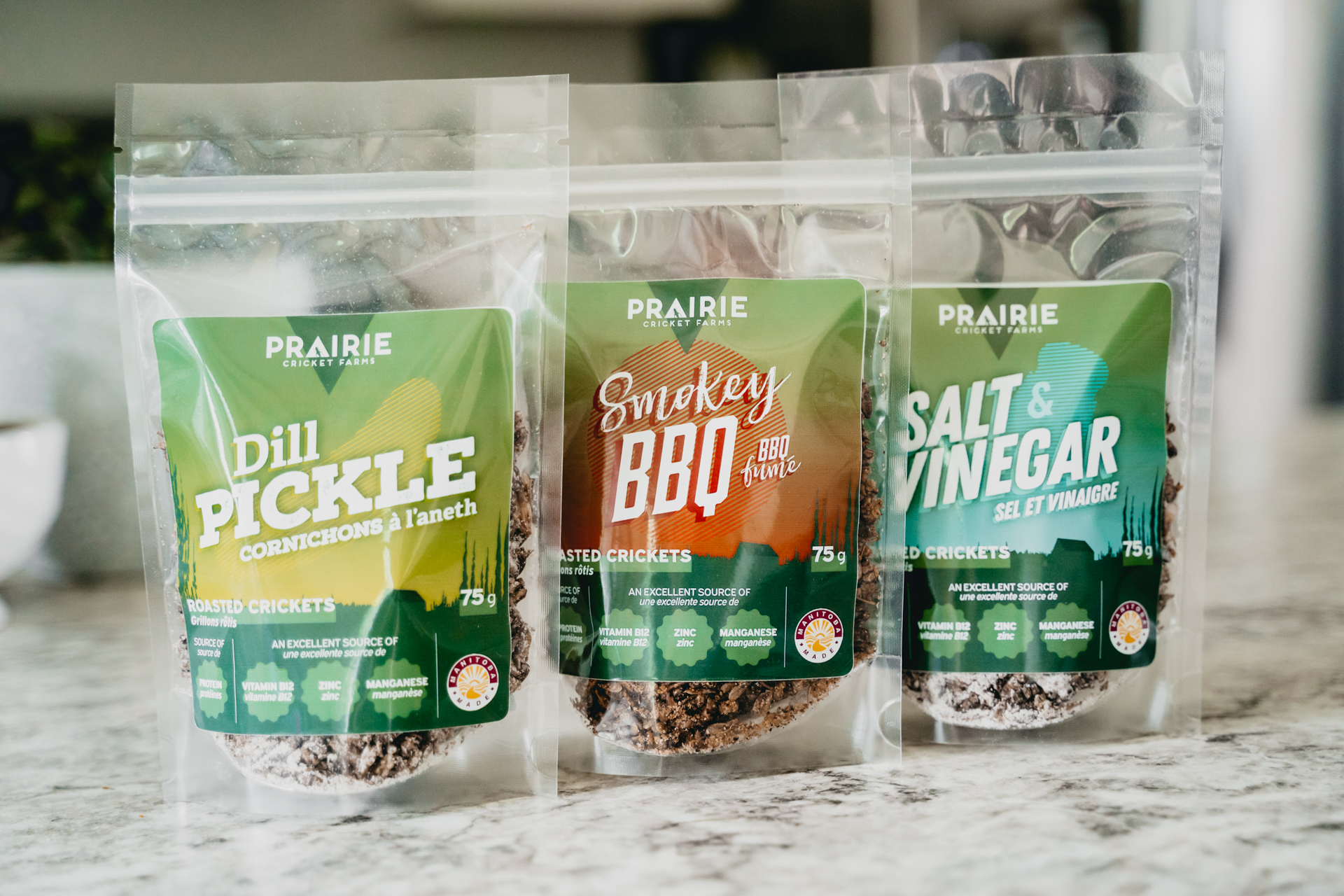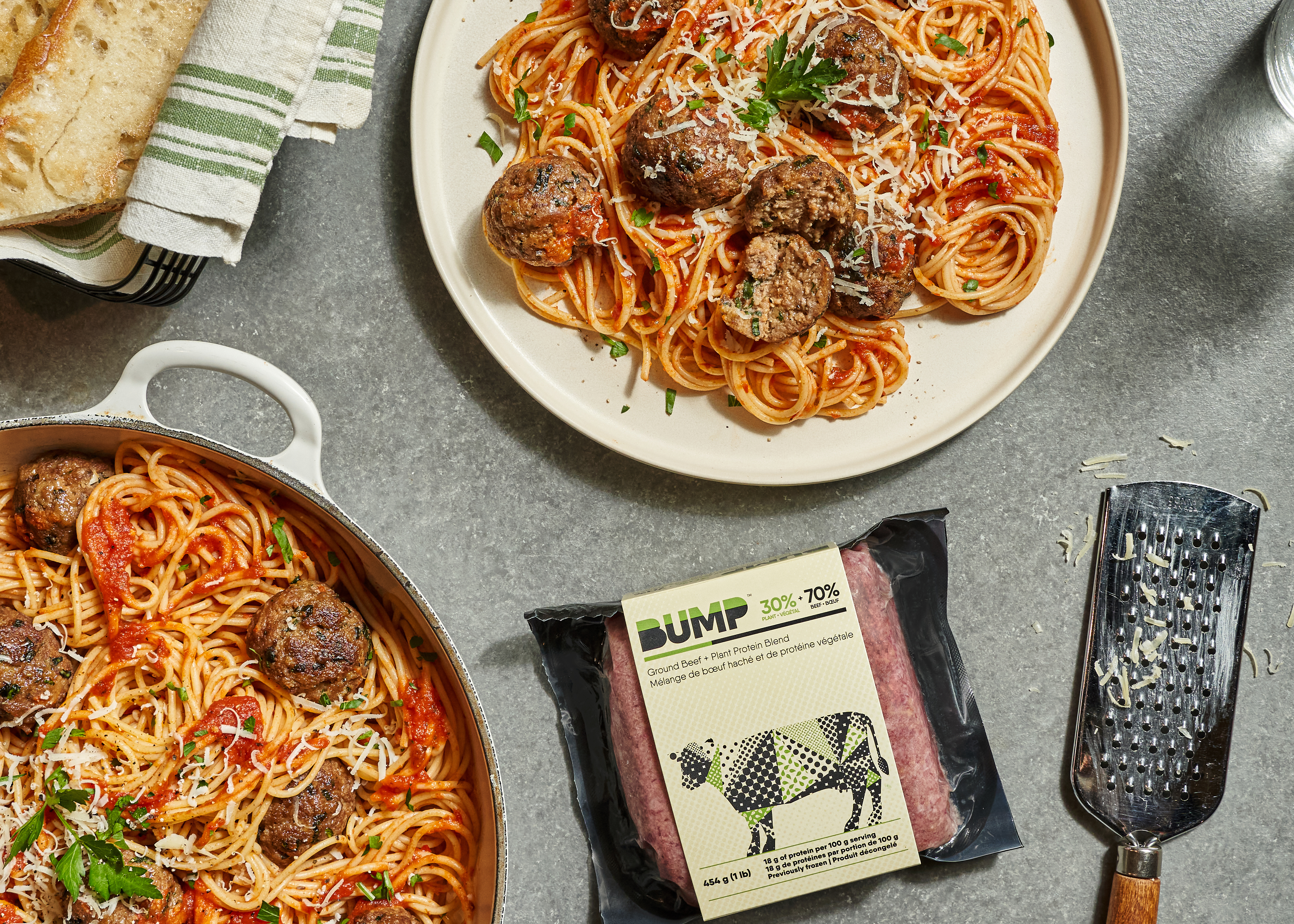Alternative Protein
What is Alternative Protein?
According to the Food and Agriculture Organization of the United Nations (FAO), alternative proteins include microbial proteins (microalgae and mycoproteins), insect-based proteins, cell-based or cultured meat, plant-based meat replacements, and dairy substitutes. Food and nutrition security can be improved by reducing agriculture's environmental and carbon footprint through alternative protein sources.

Plant-based meat alternatives are available in fast-food restaurants worldwide. Various countries, including Singapore and Israel, are testing animal cell-based meat, while insect protein bars are being sold on supermarket shelves across Europe. The market for alternative proteins is expected to grow from 13 million tonnes per year to 97 million tonnes by 2035, with a value of US $290 billion.
Explore the following categories to learn more about Manitoba's alternative Protein industry:
Manitoba’s Alternative Protein Industry
Insect Protein: Prairie Cricket Farms
What began as an unusual basement project six years ago has grown into a family-run company that makes the Steppler family extremely proud. Prairie Cricket Farm’s (PCF) mission is to produce sustainable cricket food products for an ever-growing world while promoting the health and environmental benefits of entomophagy, the study of the forms and behaviour of insects. As an owner-operated business, PCF produces cricket food products from live crickets to powders that are both sustainable and healthy.

PCF farms the tropical house cricket (Gryllodes sigillatus) in a 2,300-square-foot facility encompassing the entire production from breeding to packaging. In the future, they plan to acquire an automated watering system for the cricket beds, increasing the efficiency of their operations.
Sustainability is something they believe sets them apart from all other farming practices. PCF uses 100 per cent of the crickets and all by-products; nothing goes to waste. Every piece of the cricket is ground into cricket powder, and all manure and exoskeleton shed is used for fertilizer, called frass. This methodology uses fewer resources than traditional animal protein.
PCF has taken advantage of the excellent research facilities at the University of Manitoba to further product development. One such product is cricket frass, a mix of insect manure and exoskeletons containing chitin. Cricket frass is currently showing promise as a sustainable and environmentally friendly fertilizer as its performance is tested on canola. PCF has also benefited from product testing through the Prairie Research Kitchen, being included in Manitoba’s Protein Strategy discussions and as a member of Food and Beverage Manitoba.
Ryan and Lesley Steppler hope to continue to be seen as valuable contributors to Manitoba’s protein ecosystem with increased awareness of cricket farming and the growth of PCF through human consumption, animal feed, and crop fertilizer.
Visit Prairie Cricket Farm’s website for more information.
Plant-based Protein Analogs: Bump
The Bump story starts in 2018 with James Battershill in Winnipeg, Manitoba. The founder left a long and rewarding career in agriculture advocacy to focus on his new passion for providing sustainable solutions to the existing meat industry.

James saw an opportunity to apply a "think global; act local" from his unique vantage point in the agricultural sector and understanding the world's growing appetite for meat. His approach to an escalating problem in an industry reluctant to change would be right at home in Manitoba. The burger is made from plant-enhanced meat, which requires fewer resources to produce than an ordinary burger.
In his home kitchen, James experimented with blending beef and plant proteins to create a product without compromising taste or environmental impact. In early 2020, James created the first Bump blend with the help of friends and family, who happily contributed their taste buds to the cause.
Bump, developed by Juno Food Labs, is one of the many successful innovations supported by the Manitoba Protein Advantage (MPA) Strategy. Using a collaborative approach, the MPA Strategy works with innovators to grow the plant and animal protein industry while creating new value for producers and processors.
Contact
Is your organization active in the alternative protein space or would you like this information in an alternate format? Email us at mbproteinadvantage@gov.mb.ca to learn how our team can help you succeed.

